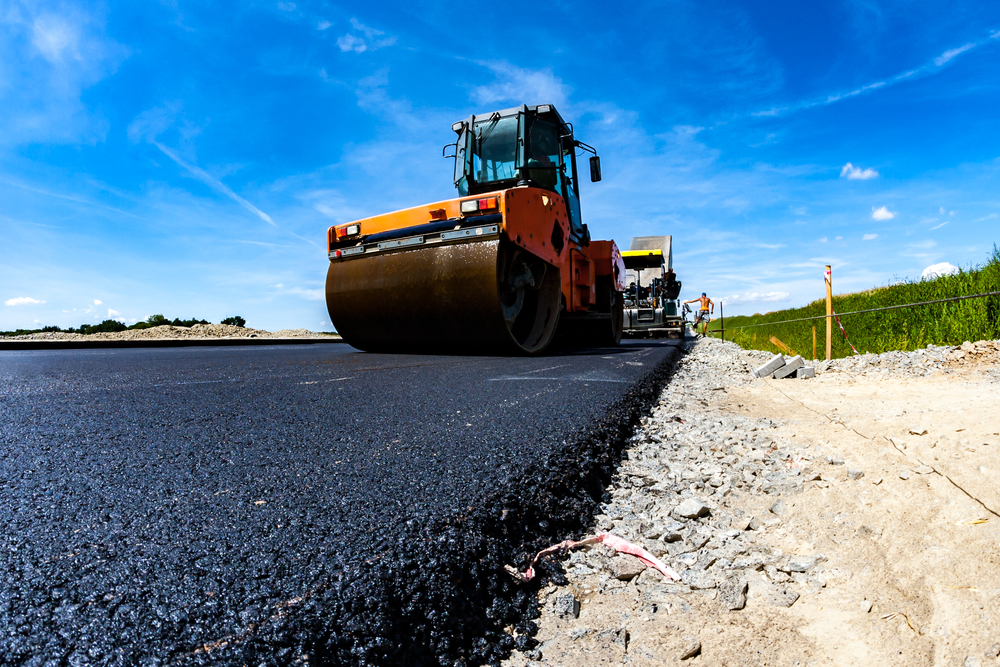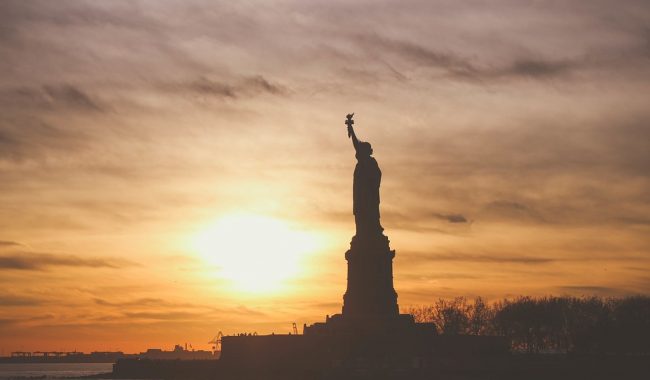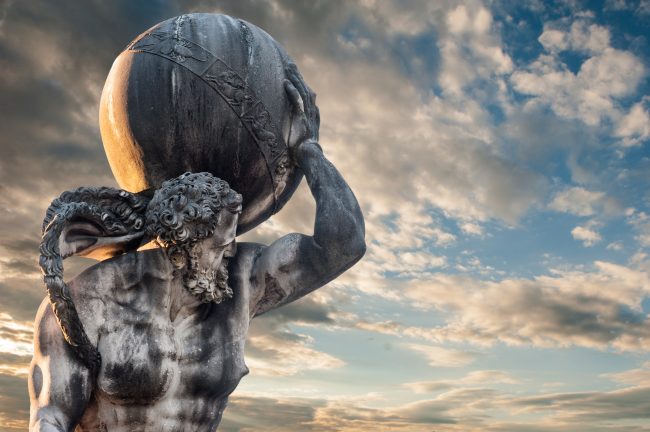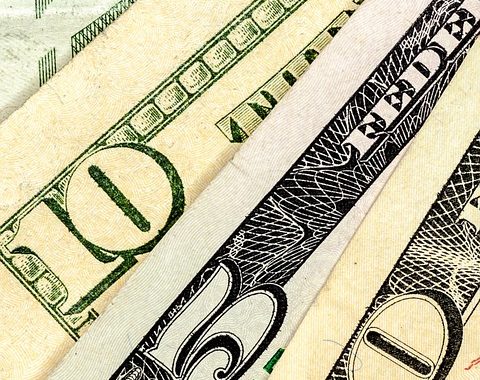“Create the chaos and then offer the way to restore order.”, David Icke, author of “The Biggest Secret”
California Governor Jerry Brown and the California political elite have employed this strategy to force through the largest regressive tax on Californians in recent history. Notably, many Californians believe the fawning media coverage and dutifully parrot the party line that “well, the roads do need fixing”. There are some exceptions to this docile submission to uncontrolled government, though likely not enough to convince Californians that their leftward lurch in recent years could in any way have resulted in these tax increases.
I’m not a fan of progressive taxes, but the hypocrisy of the most liberal state in the nation touting their “stick it to the rich” 13.3% income tax rate and then passing a profoundly regressive tax hike is so insidious that it constitutes a new low in California politics, complete with kickbacks and back-room scheming.
The CA legislature just passed SB 1, the largest gas tax hike in state history, under the threat of imminent collapse of roads and highways. Most Californians would agree that the roads are in dire need of fixing. The need for this tax, however, was never questioned fully by voters in Gov. Brown’s rapid push to get it through with a Democratic supermajority.
California liberal lawmakers realize that taxing the rich can only go so far, but they only mention this dirty little secret to each other and lobbyists in smoky backrooms. The holy grail of taxes, they realize, is a regressive tax which they secretly covet as the tax that gives them nearly unlimited spending power. You can only take so much from the rich before they pack up and leave the state, but the poor and middle class don’t have the same economic mobility. The SB 1 gasoline tax, which raises California gas taxes to the second highest (at 73.2 cents/gallon) in the country, doesn’t put the burden of the tax on technology billionaires in their Teslas or the upper middle class with their Prius’s and Volts. Instead it puts the bulk of this tax squarely on the poor and lower middle class who are just now starting to have hope with an improving economy after 8 years of stagnation. The Uber and Lyft drivers who barely break even on anything other than a premium fare will now potentially lose money on short fares. The working class who can’t afford a house closer than an hour from their workplace will now be set back even further in their saving goals.
For anyone who has driven on California roads in the last few years, it’s obvious that they have gotten far worse. On a 26 mile trip through freeways and highly trafficked side streets in Southern California recently I counted no less than 25 significant pot holes (defined as over 12″ across and deep enough to blow the tire of an ordinary vehicle if struck at speed). Speaking with public officials in Southern California, complaints about the roads have risen to become the number one complaint in San Diego County. San Diego City Councilman Chris Cate, in fact, showed me a 12-foot-long pothole via a video on his cell phone. He didn’t have the answer as to why the roads appeared to have suddenly become worse, although he was receiving an earful from his constituents.
I recently drove from Las Vegas, Nevada to Southern California and the transition from Nevada to California roads was apparent within a few miles of crossing the border. Identical traffic on the roads, identical weather, but the far less wealthy state of Nevada had far better roads.
So what is the reason for the increasingly bad roads in California? It’s not for lack of spending. According to Former San Diego City Councilman Carl DeMaio’s website, for every $1 in average costs for road repairs spent in the other 49 states in the US, California spends $4.7 dollars for the same repairs.
One answer given is that the 2016-17 winter storms, the heaviest in a few years, damaged the roads. According to the LA Times the cost for these repairs is significant, over $800M. The same article, without a sense of irony, states “California officials are hoping to get some of the money for road repairs from the federal government.” The roads have become increasingly worse from 2010-2016, however, during the great California drought. Excess rainfall doesn’t explain the declining road conditions during the drought years.
Ironically, one of the primary supporters of the bill, a lobbying group for labor unions and contractors called the “California Alliance for Jobs”, states on their SB 1 Support website that one of the reasons for the decaying roads is that almost $850M (changed on their website to $706M after the bill was passed) was “borrowed” from gas taxes by the state of CA for other purposes. The SB 1 bill does, in fact, allocate $706M as a repayment from the General Fund towards transportation costs. This decimates the argument that there were not enough funds to fix the roads damaged by the 2016-2017 winter storms. Whether $706M or $850M, there were plenty of funds to make the repairs before they were diverted into the general fund, which created a government-made crisis begging for a bigger government solution.
The official party line on reasons for the declining roads seem to shift. At first, non-profit groups such as Next 10 blamed the declining road conditions on reduced tax revenues due to reductions in gasoline sales by volume (ironically caused by increased fuel efficiency and increased use of state-incentivised electric vehicles). One could go on about how, if the state is encouraging decreased use of gasoline through financial incentives, then perhaps it should have planned for a reduction in gasoline consumption, but no need! According to the California State Board of Equalization gasoline revenues have been on the rise since 2014 and 2016 had the highest level of consumption since 2008. So none of the reasons provided by California’s government for the horrendous state of the roads appear to have any validity, except the one that is not given. From all appearances, the California government allowed the roads to decline while “borrowing” the funds required to fix the roads so that they could pass a $52B regressive tax while they had a Democratic supermajority. Jerry Brown even shamelessly acknowledges this:
“All the guys running for governor [in 2020] want to be president, so they are not going to want to raise taxes.”
One bit of dark humor is that the SB 1 Bill creates a new bureaucratic position within a new bureaucracy called the Caltrans Independent Office of Audits and Investigations to make sure that the funds are not diverted for non-transportation needs. So they needed to create a $52B gas tax to allow an inspector general to figure out where the previous diverted funds were spent?
Even the stated usage of the funds doesn’t pass a sanity check. None of the funds will be used for new roads to alleviate the rapidly increasing traffic congestion. John Franklin, Deputy Mayor from Vista, CA feels that very little of the funds allocated for transportation will be used for their intent. He cites the flawed (and now under investigation) SANDAG Measure A half-cent sales tax as an example. “Fifty percent of that tax was for salaries of transportation workers. It’s for union employees. More union employees equals more power.” Deputy Mayor Franklin also feels that the tax is part of an misguided push by Democrats to eliminate automobiles. “This tax is two-pronged. Make it more expensive to drive a car, then divert the funds so the roads make it more difficult to drive a car. The Democrats don’t understand that you can’t implement mass transit solutions like Manhattan has when the population density is a fraction of there. Instead of trying to force the poor and middle class onto trains and buses and expanding their commute time by 2x, we should be allowing them the freedom to operate automobiles and spend more time with their families.”
The bill barely passed with the minimum number of Senate and Assembly votes (by a Democratic supermajority with one token Republican, Anthony Canella, who openly states that he received $500M for “certain things” for his district) and was never even considered to be put in front of the voters. Probably a good thing, since polling indicates that voters were opposed to it, 44%-37%. According to Sen. Cannella “At the end of the day I asked for certain things and they delivered them, so I needed to vote for it.” I don’t think that passes for voter approval.
After passage, the response has been predictably negative by some voters. While the politicians were expecting the few remaining Republicans in the state to squawk, they were so unprepared for the backlash (including a recall campaign by former San Diego City Councilman Carl DeMaio) that Jerry Brown lashed out calling anyone who opposed his tax “freeloaders”. When did expecting roads in one of the highest taxed states in the country to be actually be drivable qualify one as a “freeloader”? This is a perfect example of the entitlement mentality of big government. They take your money, criminally mismanage it to the point where it no longer covers basic needs, then subject taxpayers to ad hominem attacks if they dare to protest being taxed more for services for which they were already paying.
The liberal media, however, has been almost comical in support of the union-supported bill, with unintentionally hilarious articles such as “It’s Not A Tax, It’s An Opportunity“. Tell that to the single mom with a 90 minute commute every day.
San Diego City Councilman Chris Cate affirms the non-prioritization of road repairs:
“Elected leaders need to be reminded that the state has the highest revenues in history. Despite this, they continue to not prioritize funding for our streets.”
There is some hope for California. Carl DeMaio’s recall campaign uses what he calls “The Gazelle Strategy” to break the Democratic Supermajority.
“Think of this strategy as the “Gazelle Strategy.” If you have seen Animal Planet, you know that lions hunt for food not by attacking an entire pack of Gazelles at once, but targeting the weakest gazelle and taking that one gazelle out. Far more efficient and an almost guaranteed success rate.
Our campaign to repeal the Car Tax utilizes the Gazelle Strategy. That’s why we propose to launch a Recall Campaign against State Senator Josh Newman (D-Orange County). Senator Josh Newman won by less than 1% of the vote in 2016 – and yet he betrayed his constituents by voting for the Car Tax and Gas Tax hikes. Our campaign intends to file Recall Papers in the next month against Senator Newman and collect 60,000 valid signatures to force him from office.”
Unfortunately, even if successful, the barn door will be shut long after the cows have headed for other pastures. Removing the Democratic supermajority may help to put the brakes on future attempts to bypass the voters to impose tax increases, but only the California voters themselves can change their elected politicians to try to limit the seemingly endless efforts of their government to expand itself into an all-encompassing entity. Even now there are proposals to more than double California’s budget (to more than triple the next closest state of New York) to implement single payer healthcare, despite similar failed attempts in Vermont and Colorado.
If you travel to Henderson, NV or Austin, TX you will find entire neighborhoods of former Californians who will tell you they came there as California tax refugees. They’ve found their own Galt’s Gulch to escape from socialism, with beautiful, cheap homes and excellent schools. Soon the upper middle class will become the “wealthy” in California and will find themselves firmly in the cross-hairs of the government revenue scavengers.
California may find soon that it needs to build a wall on its borders, not to keep people out but to keep its citizens from leaving for lower-tax climes. Luckily there is still some wall-building expertise in the former East Germany they can leverage.
Eric Basu is a former Navy SEAL, serial entrepreneur and author of the Post-Objectivist blog.




